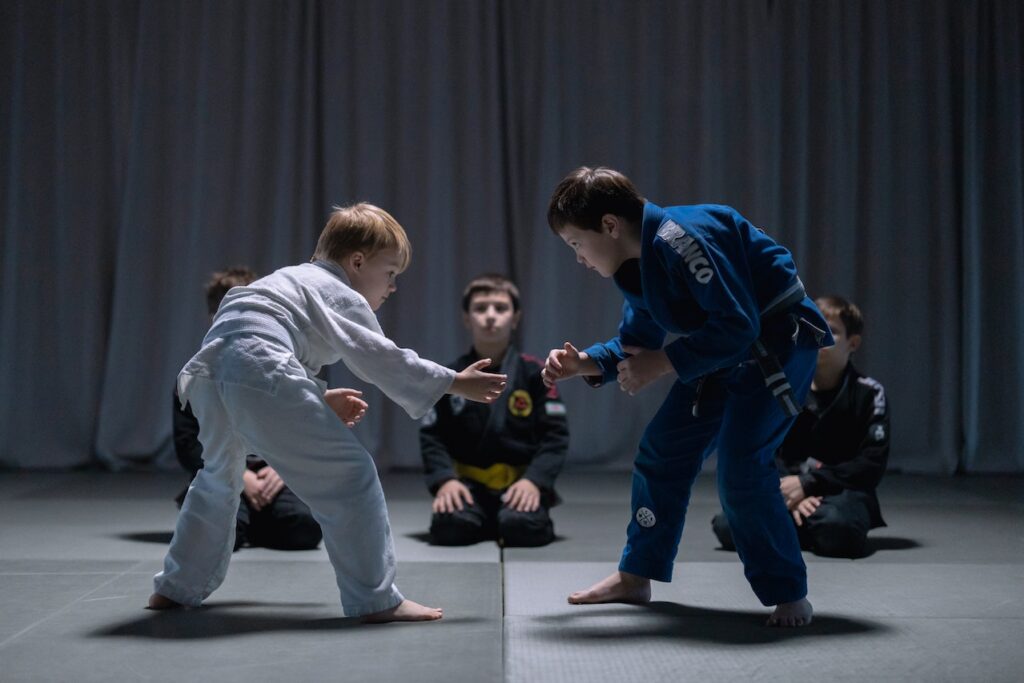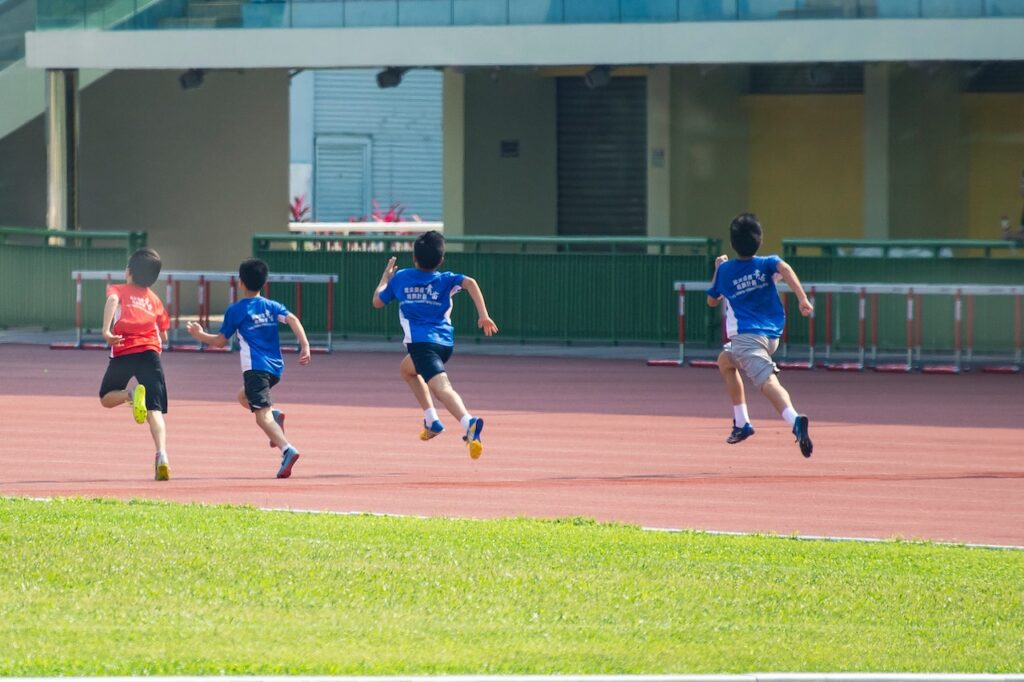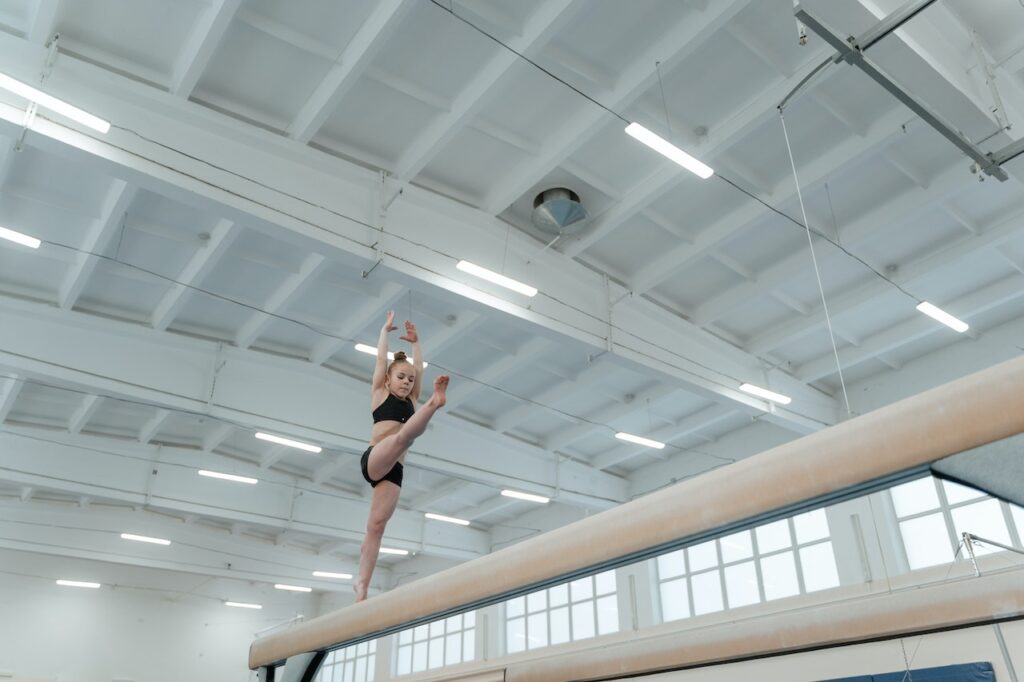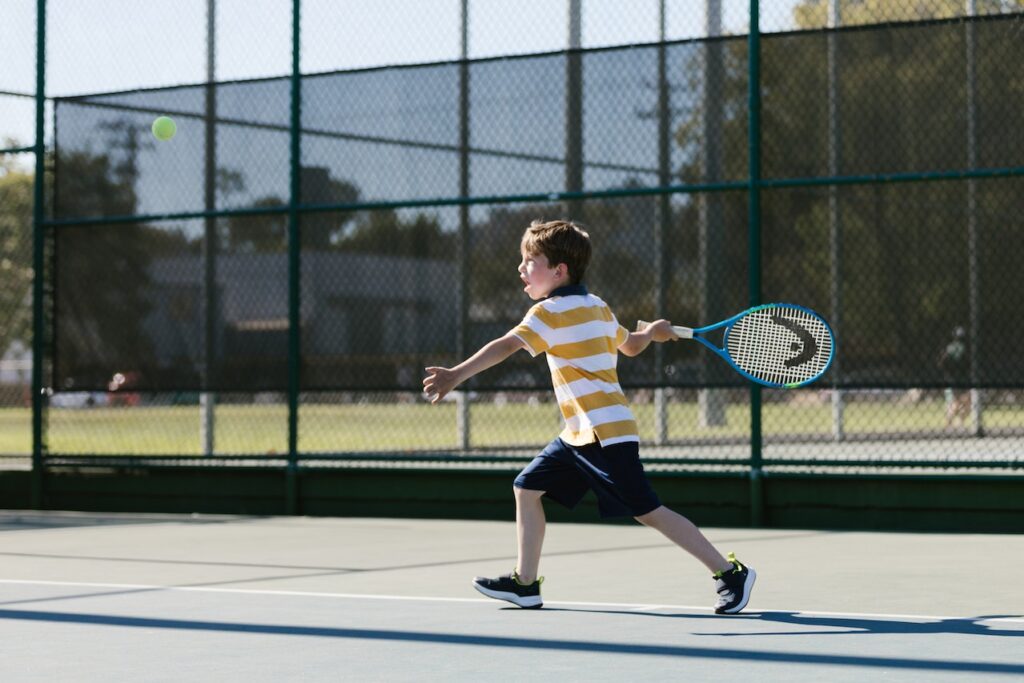Your child may be “athletic” if physically active, strong, and good at sports. But how can you tell if a child is going to be athletic from an early age?
It is essential to identify athletic potential in children so that parents can help them enhance their abilities and being outstanding athletes.
In this post, we will help you recognize the signs of whether your child is athletic and how to develop athletic potential in children.
Factors That Determine Athletic Potential for Children

Genetics
Studies have shown that genes affect children’s athletic potential: If you are athletically inclined, it is quite possible your child will also be an athlete, too.
Physical development
Children who exercise regularly ensure normal physical development and have a greater chance of athletic potential.
Cognitive development
Some of the most important cognitive skills for any athlete are focus, visual attention, visual tracking, and fast decision-making. If your child has excellent cognitive development, he can have strong athletic potential.
Social and environmental factors
In a warm environment, a child has room to practice and engage in outdoor activities more than once in cold areas.
Children living in a society that encourages sport spirit also helps children develop sports talents.
How to Tell if Your Child is Going to Be Athletic

It is hard to say a precise age at which one can tell athletic ability in a child, but between the ages of 4 to 9 years or sometimes earlier, you could start seeing signs of athletics in a child.
Early physical development
Your children can walk faster than their normal age. They tend to be active, grasping for things, rather than passively sitting still.
Speed is a valuable aspect of success in any sport. It is correlated to a child’s motor skills, which differ greatly from child to child. Of my 3 children, the middle one is the fastest and even though he is younger and smaller than the first, he runs faster and drops the ball into the basket with more accuracy.
Coordination and balance

Hand-eye coordination is a skill children learn over time. If your child shows very good hand-eye coordination skills at an early stage, there is a chance that you are dealing with a potential athlete. Being able to follow an object with your eyes and respond with a proper hand or foot movement is a huge advantage in sports.
Your children may have a good sense of balance: Balance is the ability to have complete control over your body movements. Toddlers who have a great sense of balance show good signs of athletic ability.
Interest in physical activities
Does your child enjoy going out often? Are they interested in sports and excitedly waiting for the day to go swimming and play basketball? Those are wonderful signs of being true athletes in the future.
Ability to learn and improve quickly
A child’s ability to learn quickly should not be overlooked. Is your child able to reproduce quickly what he or she has seen and is proud to show off her or his updated skills?
A fast learner tends to copy the behavior of others and learn quickly from experience which can be a very strong ability in sports.
Competitive spirit
Your child tends to be competitive when playing in groups. You will often hear “I am the winner”, “I am the strongest”, or “I am the fastest”. Your children always try their best and do not want to be a loser can be a sign of being excellent at sports in the future.
Identifying Athletic Potential in Different Age Groups

Children’s athletic ability is difficult to measure or identify accurately at different ages. You can see the signs of a future athlete above to consider your child’s athletic potential.
If children like to watch sports programs and show their talents in strength, resilience, and ingenuity in football, basketball, aerobics, etc., it can be considered a high athletic ability and parents should pay more attention to developing sports skills in their children.
Developing Athletic Potential in Children
The followings are good practices to nature an athletic child:
- Encouraging physical activity like outdoor picnics, or playing as a team…
- Providing opportunities for skill development: You can find a coach to focus on developing the skills your child has the most potential for
- Fostering a supportive environment by encouraging your child to join a sports club he or she like the most.
- Be actively involved in your child’s activities: Watch the child play, and attend competitions where they are participating in motivating your child.
Conclusion
It is great if your child has athletic potential, and you can help them grow better!
However, in my opinion, whether children are athletic or not, they should exercise regularly to be healthy, and avoid being overweight and getting sick.
Parents should accompany their children and encourage them to be active in sports to have full of energy for any other activities.
FAQ
How can I encourage my child to be more active?
To encourage your child to be more active, you should be a good model. You can show your willingness to play sports at any time for your child to follow.
Some children are motivated by knowing the benefits of activity, so you tell your child how sports help relax us, make us happier, improve our heart health, make our muscles stronger, and keep us from getting sick.
You can let your child try out several different sports to find out which one they love the most and then pursue it.
What sports are best for my child based on their age?
Depending on your child’s age, you can let him or her try out many different activities or sports. Younger children can be accompanied by older siblings to see and try before choosing the best-matched sport.
Can my child become a professional athlete?
Being a professional athlete is one of the most glamorized careers. If parents discover their children’s athletic potential, and children especially love a certain sport, they can absolutely practice becoming professional athletes.
However, the journey to becoming a professional athlete maintains lots of hardship, and not everyone can pursue it to the end.
How can I help my child improve their coordination?
Activities such as dancing, swimming, racquet sports, Pilates, yoga, and balanced board are great ways to improve your child’s coordination and performance.
For smaller kids, they can practice walking, crawling, running, and standing on one leg…to improve their coordination.







